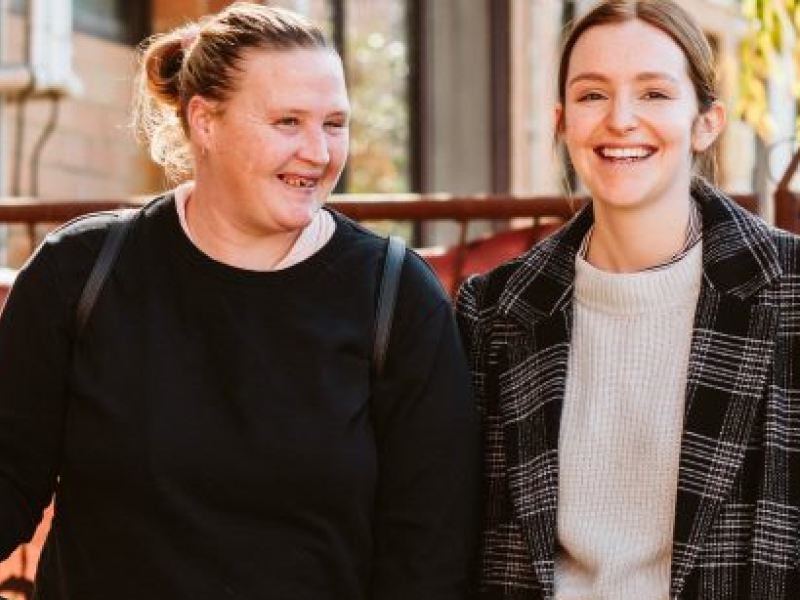South Australians who access the Individual Psychosocial Rehabilitation Support Service (IPRSS) are significantly improving their mental health and wellbeing, according to new data from Mind Australia.
Mind delivers the Individual Psychosocial Rehabilitation Support Service in east and far north Adelaide, the Adelaide Hills, Fleurieu Peninsula, Riverland and Limestone Coast regions.
The service is a community-based program that supports people recovering from mental health and wellbeing challenges to live safely and with independence in the community.
This includes helping people find and maintain suitable housing, build the skills to get back to work or study, improve social relationships and develop the skills for daily and independent living.
An evaluation conducted with Mind IPRSS clients found considerable improvement in several areas of life, including:
- a 19 per cent improvement in goal setting
- a 16 per cent improvement in social inclusion, and a
- 12 per cent improvement in general health and wellbeing.
Dr Laura Hayes, Mind Research and Evaluation Manager, said the evaluation involved regularly checking with clients and carers about the “aspects of their personal needs and circumstances” that Mind programs aim to meet.
“By using the Camberwell Assessment of Need Short Appraisal Schedule (CANSAS) survey, we can assess the need rating for each of the 22 CAN domains, such as: diet, physical and mental health, financial welfare, accommodation or employment/education,” Dr Hayes said.
“The CANSAS survey is also used as a practice tool to identify life areas that a client might want to set goals to work toward. This also enables practitioners and clients to track their progress in overcoming specific challenges.”
Mind IPRSS clients enter the program with an average of 4.5 unmet needs in their life.
Mind IPRSS clients report an average score of just 2.41 unmet needs after 18 months in the program – more than a 50 per cent improvement.
“There is a statistically significant difference between clients’ before and after scores,” Dr Hayes said.
“These results give us confidence that there has been a real change for clients since entering the IPRSS program.”
The IPRSS helped Lisa (name changed) after she was referred to the program following a hospital admission.
Lisa, who has a diagnosis of schizophrenia, experienced significant negative symptoms, suffered low motivation, had difficulty with spontaneous conversation and required support to complete daily living tasks.
With the support of the IPRSS and Mind’s team of community mental health and peer practitioners, Lisa used Mind’s My Better Life recovery tool to identify life goals that she wanted to work towards, and the necessary supports required to help her achieve them.
Mind staff also helped Lisa create a personalised Client Wellness and Safety Plan – a resource to help someone stay well and inform them, and their support network, of what they need to do if they take a negative turn.
In addition to these wellbeing tools, Lisa also received psychosocial and practical support from Mind, including assistance applying for Centrelink and Disability Support Pension, navigating the NDIS and regular communication and collaboration with her care coordinator.
The combination of these supports enabled Lisa to become independent enough to move out of her family home and into supported accommodation. She also became well enough to finish her floristry studies and secure paid work and volunteering opportunities.
Lisa now catches public transport unassisted, manages her own medication and medical appointments and her diet and physical fitness have also improved significantly.
Denise Cumming, Mind’s Executive Director of Operations for South Australia, said psychosocial supports like the IPRSS help Lisa and other people experiencing mental health and wellbeing concerns to take positive steps in their recovery journey.
“Mind is a trusted psychosocial support provider with more than 15 years of experience supporting South Australians,” she said.
“Our dedicated community mental health and peer practitioners help people manage daily activities, rebuild and maintain connections, engage with education and employment, and to participate fully in the community.
“Mind’s psychosocial support services engender hope for clients, that they can live a life of purpose on their terms.”
The IPRSS is funded by SA Health.
For information on Mind services near you, please contact us via Mind Connect or phone: 1300 286 463.
If this article raises concerns for you, please call Lifeline on 13 11 14. Aboriginal and Torres Straits Islanders can also call 13 YARN (13 92 76) a 24/7 national crisis support telephone service staffed by Aboriginal and Torres Strait Islander peoples.
